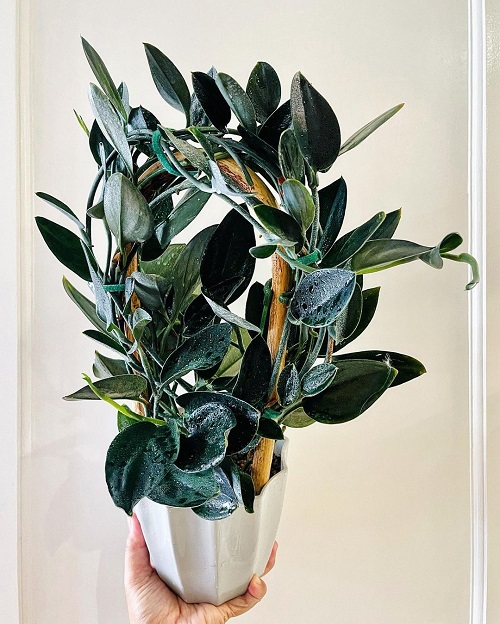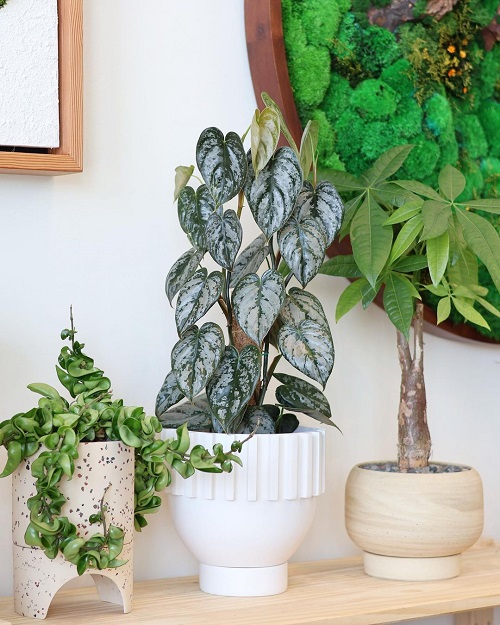Are you among those who wonder Do Plants Like Music? And whether they respond to vibrations or not? Let’s find that once and for all!
Humans are inherently curious, and that’s what leads us to such wonderful discoveries. So you should never let any query remain unanswered, even if it sounds absurd! One such question is whether plants can hear music or any sound for that matter or not. Let’s find out Do Plants Like Music or not!
Have a look at the sensory houseplants for a stimulating indoor garden here
Can Plants Hear?
Plants do not have ears or a nervous system like animals, so they do not “hear” in the way animals do. However, plants are capable of detecting and responding to various environmental stimuli, including vibrations and sound waves, in their own unique ways.
Research has suggested that some plants can sense vibrations and respond to them. For example, certain studies have shown that plants can react to the sound of a nearby insect or the vibrations caused by a caterpillar chewing on its leaves.
The exact mechanisms by which plants detect and respond to these vibrations are still being studied, but it is thought to involve changes in the plant’s growth or chemical signaling.
Can Plants Hear Sounds?
Botanically speaking, plants can’t hear sounds, as there isn’t a sensory receptor anywhere in them to receive sound. Plants also don’t possess a brain and a central nervous system, so even if there were any receptors, they wouldn’t be able to convert the audio signals.
There’s a catch, though! Although plants can’t hear the sounds, according to the research, they can feel the vibrations!
Wonder, do plants grow in the night? Click here!
Can Plants Feel Vibrations?
Heidi Appel and Rex Cocroft of the University of Missouri researched an answer to this query, and you’ll be surprised to know that the results were positive. They proved this by recreating the sound of herbivorous caterpillars eating away the leaves and playing the recordings for Arabidopsis plants. What they uncovered was astonishing!
The set of plants exposed to the recorded caterpillar vibrations sound produced more mustard oil than the plants that were not fed with a similar note. Experiments with the other recordings of natural sounds did not yield similar and satisfactory results. All in all, plants do respond to the vibrations according to the tests!
Do Plants Like Music?
There isn’t a foolproof answer to that question, and there is no specific music that plants like. However, there are various studies and experiments conducted on the effects of music on the plant, which yielded positive results.
If you wonder why do plants like music, then a study conducted by Dr. T. C. Singh will answer it for you! The research indicated that it has a direct impact on the growth rate of the plants. The balsam plant showed an increase of 20 percent in height and the overall biomass by a whopping 72 percent! Among different forms of music, including classical and various instruments like flute, violin, harmonium, etc. the violin was the most effective.
Some similar experiments were conducted on do plants like music by Sir Jagadish Chandra Bose and Luther Burbank, supporting the claim that plants could sense vibrations. Although these and some other studies yielded positive results, it’s still a topic of debate among the scientific community.
All in all, you can give it a try; after all, music will be soothing if not for plants, for you! Rest assured, it won’t cause any harm to the plant!
What Kind of Music Do Plants Like?
The idea that plants have preferences for specific types of music is a topic of debate and controversy. While some studies have suggested that plants may respond positively to certain types of music, the scientific evidence on this topic is not conclusive, and the idea of plants having musical preferences remains largely anecdotal.
Some experiments have claimed that playing classical music or soothing sounds can promote plant growth and health. Other studies have suggested that vibrations or certain frequencies of sound might have a mild impact on plant growth, as explained above. However, these findings are not widely accepted by the scientific community, and many experts consider them to be inconclusive or subject to interpretation bias.
Can Plants Make Music?
Plants can produce sounds, but whether you consider these sounds to be “music” is subjective. The sounds produced by plants are typically a result of various physiological processes and interactions with their environment.
For example, when water moves through the plant’s tissues or when the plant undergoes growth-related processes, it can generate faint popping, clicking, or rustling sounds. These sounds are usually very subtle and not melodious in the way we typically think of music.
What Music Helps Plants Grow the Best?
The idea that specific types of music can significantly influence plant growth is still a topic of debate and has not been conclusively proven by scientific research.
If you are interested in experimenting with music and plants, you can try various types of music and observe how your plants respond. Keep in mind that any observed effects might be due to other factors, such as changes in the environment, vibrations, or background noise associated with playing music.






Or just get real copper planters instead of this fake shite